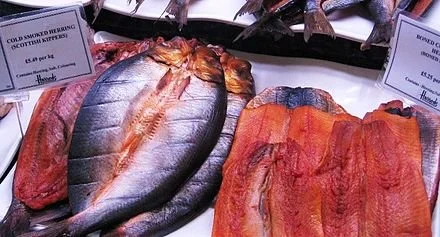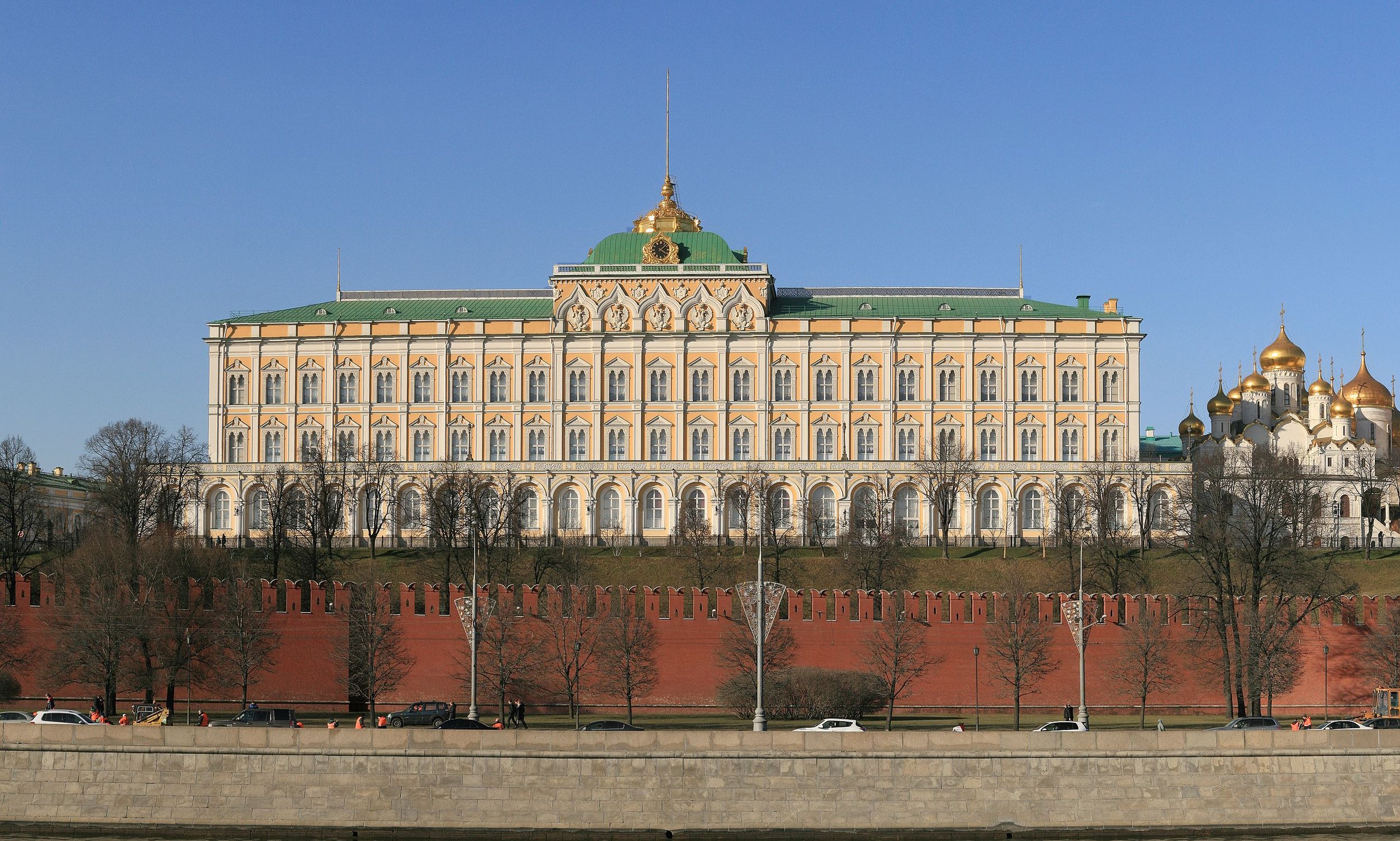David Warsh: A smelly red herring in Trump-Russia saga
Herrings "kippered" by smoking, salting and artificially dyeing until made reddish-brown, i.e., a "red herring". Before refrigeration kipper was known for being strongly pungent. In 1807, William Cobbett wrote how he used a kipper to lay a false trail, while training hunting dogs—a story that was probably the origin of the idiom.
Grand Kremlin Palace, in Moscow, commissioned 1838 by Czar Nicholas I, constructed 1839–1849, and today the official residence of the president of Russia
SOMERVILLE, Mass.
A red herring, says Wikipedia, is something that misleads or distracts from a relevant and important question. A colorful 19th Century English journalist, William Cobbett, is said to have popularized he term, telling a story of having used strong-smelling smoked fish to divert and distract hounds from chasing a rabbit.
The important questions long have had to do to do with the extent of Trump’s relations with powerful figures in Russian before his election as president; and with whether the FBI did a competent job of investigating those charges.
The herring in this case is the Durham investigation of various forms of 2016 campaign mischief, including (but not limited to) the so-called “Steele Dossier’’. The inquiry into Trump’s Russia connections was furthered (but not started) by persons associated with Hillary Clinton’s campaign. {Editor’s note: The political investigations of Trump’s ties with Russia started with anti-Trump Republicans.}
Trump’s claims that his 2020 defeat were the result of voter fraud have been authoritatively rejected. What, then, of his earlier fabrication? It has to so with the beginnings of his administration, not its end. The proposition that Clinton campaign dirty tricks triggered a tainted FBI investigation and hamstrung what otherwise might have been promising presidential beginning has been promoted for five years by Trump himself. The Mueller Report on Russian interference in the 2016 election was a “hoax,” a “witch-hunt’’ and a “deep-state conspiracy,” he has claimed.
Today, Trump’s charges are being kept on life-support in the mainstream press by a handful of columnists, most of them connected, one way or another, with the editorial page of The Wall Street Journal. Most prominent among them are Holman Jenkins, Kimberly Strassel and Bret Stephens, now writing for The New York Times.
Durham, a career government prosecutor with a strong record as a special investigator of government misconduct (the Whitey Bulger case, post 9/11 CIA torture) was named by Trump to be U.S. attorney for Connecticut in early 2018. A year later, Atty. Gen. William Barr assigned him to investigate the president’s claims that suspicions about his relations with Russia had been inspired by Democratic Party dirty tricks, fanned by left-wing media, and pursued by a complicit FBI. Last autumn, Barr named Durham a special prosecutor, to ensure that his term wouldn’t end with the Biden administration.
There is no argument that Durham has asked some penetrating questions. The “Steele Dossier,” with its unsubstantiated salacious claims, is now shredded, thanks mostly to the slovenly methods of the man who compiled it, former British intelligence agent Christopher Steele. Durham’s quest to discover the sources of information supplied to the FBI is continuing. The latest news of it was supplied last week, as usual, by Devlin Barrett, of The Washington Post. (Warning: it is an intricate matter.)
What Durham has not begun to demonstrate is that, as a duly-elected president, Donald Trump should have been above suspicion as he came into office. There was his long history of real estate and other business dealings with Russians. There was the appointment of lobbyist Paul Manafort as campaign chairman in June 2016; the secret beginning on July 31 of an FBI investigation of links between Russian officials and various Trump associates, dubbed Crossfire Hurricane; Manafort’s forced resignation in August; the appointment of former Defense Intelligence Agency Director Michael Flynn as National Security adviser and his forced resignation after 22 days; Trump’s demand for “loyalty” from FBI Director James Comey at a private dinner a week after his inauguration, and Comey’s abrupt dismissal four months later (which triggered Robert Mueller’s appointment as special counsel to the Justice Department): none of this has been shown to do Hillary Clinton’s campaign machinations.
The Steele Dossier did indeed embarrass the media to a limited extent – Mother Jones and Buzzfeed in particular – but it was President Trump’s own behavior, not dirty tricks, that disrupted his first months in office. Those columnists who exaggerate the significance of campaign tricks are good journalists. So why keep rattling on?
In the background is the 30-year obsession of the WSJ editorial page with Bill and Hillary Clinton. WSJ ed page coverage of the story of John Durham’s investigation reminds me of Blood and Ruins, The Last Imperial War 1931-1945 (forthcoming next April in the US), in which Oxford historian Richard Overy argues that World War II really began, not in 1939 or 1941, but with the Japanese invasion of Manchuria in 1931. Keep sniffing around if you like, but what you smell is smoked herring.
David Warsh, a veteran columnist and an economic historian, is proprietor of Somerville-based economicprincipals.com, where this essay originated.
© 2021 DAVID WARSH

